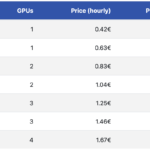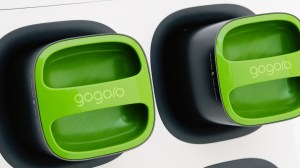Mario creator Miyamoto counters cloud gaming hype (but don’t count Nintendo out)
Cloud gaming — however a company chooses to define that — is shaping up to be a big part of the next generation of consoles and other platforms. But Mario creator and Nintendo veteran Shigeru Miyamoto says his company won’t be so quick to jump on the bandwagon.
Speaking to shareholders at Nintendo’s annual general meeting, Miyamoto and other executives addressed a variety of issues, among them what some interpret as a failure to keep up with the state of the industry. Sony and Microsoft (together, amazingly) are about to lock horns with Google, Nvidia, and others in the arena of game streaming, but Nintendo has announced no plans whatsoever regarding the powerful new technology.
As reported by GamesIndustry.biz, Miyamoto was unfazed by this allegation.
“We believe it is important to continue to use these diverse technical environments to make unique entertainment that could only have been made by Nintendo,” he said. “We have not fallen behind with either VR or network services… Because we don’t publicize this until we release a product, it may look like we’re falling behind.”
But although this hinted that Nintendo is working in this direction, Miyamoto didn’t sound convinced that cloud gaming was a home run.
“I think that cloud gaming will become more widespread in the future, but I have no doubt that there will continue to be games that are fun because they are running locally and not on the cloud,” he said.
The Nintendo focus on local multiplayer and complete offline single-player games is certainly emblematic of this point of view. And while Nintendo has been slow to adopt the latest gaming trends, it has shown that it can pull them off very well, indeed like no other, for example with the excellent Splatoon 2 and its constantly evolving seasons and events.
Nintendo President Shuntaro Furukawa said they see how gaming technology is evolving and that it’s important to “keep up with such changes,” but like Miyamoto made no indication that there was anything concrete on the way.
Instead, he indicated (again in true Nintendo style) that the company would reap the benefits of cloud gaming whether or not it took part in the practice.
“if these changes increase the worldwide gaming population, that will just give us more opportunities with our integrated hardware and software development approach to reach people worldwide with the unique entertainment that Nintendo can provide,” he said.
In other words, a rising tide lifts all boats, and if the others did the work to raise the water level, well, that’s their business.
The rumor on everyone’s mind after E3 is whether a new Switch or Switches are on the way. Naturally Furukawa demurred, saying that of course they were aware of speculation, but wouldn’t comment. However, he added: “It would spoil the surprise for consumers and is against the interests of our shareholders, so we are withholding any discussion.”
Of course a new Switch is on the way — that’s about as much as a confirmation anyone would be able to get from Furukawa or the other highly trained executives at Nintendo, even if the new hardware was coming out tomorrow. But at this rate it seems more likely that the new hardware will be timed to pull in buyers around the holidays — which may have the knock-on effect of taking the wind out of Microsoft and Sony’s sails (and sales) when they debut their next-generation consoles next year.
Powered by WPeMatico
Daily Crunch: Layoffs at HQ Trivia
The Daily Crunch is TechCrunch’s roundup of our biggest and most important stories. If you’d like to get this delivered to your inbox every day at around 9am Pacific, you can subscribe here.
1. HQ Trivia lays off ~20% as it preps subscriptions
The cuts hit HQ’s HR, marketing and product engineering teams, according to LinkedIn profiles of employees let go. The cuts could further hamper morale at the startup following a tough first half of the year.
It also could leave the company short-handed as it attempts to diversify revenue with the upcoming launch of monthly subscriptions.
2. Tesla shows off next-gen automated emergency braking stopping for pedestrians and cyclists
The upcoming features include automatically engaging the brakes on a vehicle when the system detects a pedestrian crossing the car’s path, and doing the same for a cyclist.
3. Internet group brands Mozilla ‘internet villain’ for supporting DNS privacy feature
The trade group for U.K. internet service providers nominated Mozilla for the title because of a proposed security feature that ISPs say will allow users to “bypass U.K. filtering obligations and parental controls, undermining internet safety standards in the U.K.”

4. Apple reportedly shifting to new keyboard design in 2019/2020 MacBooks
Apple is set to replace the technology underlying the keyboards found in its MacBook Air and MacBook Pro computers, according to a new report from Apple analyst Ming-Chi Kuo.
5. Sony’s new wireless earbuds pack great noise-canceling and battery life
Brian Heater has only had a limited time with Sony’s WF-1000XM3, but he says they seem custom-built for long flights.
6. Waresix hauls in $14.5M to advance its push to digitize logistics in Indonesia
Like others in its industry — which include Chinese unicorn Manbang and BlackBuck in India — Waresix is focused on optimizing logistics by making the process more transparent for clients and more efficient for haulage companies and truckers.
7. What everyone at a startup needs to know about immigration
Over the past three years, immigration policies and procedures have been in a state of flux and the process has become more unforgiving for even the smallest mistakes. (Extra Crunch membership required.)
Powered by WPeMatico
Karamel is an app to find activities for your kids
French startup Karamel wants to help you find things to do for your kids. The company is launching a mobile app that lets you find and book kid-friendly activities around you.
The startup also just raised a $560,000 round (€500,000) from Kima Ventures, Roxanne Varza, Thibaud Elzière and Oleg Tscheltzoff. Varza participates in the Atomico Angel Programme, which means that Atomico handed out $100,000 to invest in multiple early-stage companies. Atomico and Varza both see returns if the company eventually succeeds.
Karamel wants to become a one-stop shop for things your kids can do. When you open the app, you get a curated selection of activities around you so that you can find something to do this weekend, for instance.
If you’re looking for something specific, you can search for activities based on multiple criteria, such as the age of your child, an activity category, price, distance and day of the week.
You also can find recurring activities in case your child really wants to learn a new instrument or start a new sport, for instance.
On the other side of the marketplace, there are many different organizations in charge of activities. It’s a fragmented market, and those organizations don’t always know how to reach parents efficiently.
Thanks to Karamel, those organizations should get more traffic and could focus more on activities themselves. The startup doesn’t charge any monthly subscription fee. Instead, Karamel is taking a cut on transactions. Parents pay the same price if they book directly or though Karamel.
The service is currently live in Paris. And if you live in Marseille, Lyon, Bordeaux or Montpellier, you can search for activities but can’t book through the app just yet.
In the U.S., KidPass provides something vaguely similar, but with a monthly subscription fee. KidPass opted for a credit-based system like Audible or ClassPass.
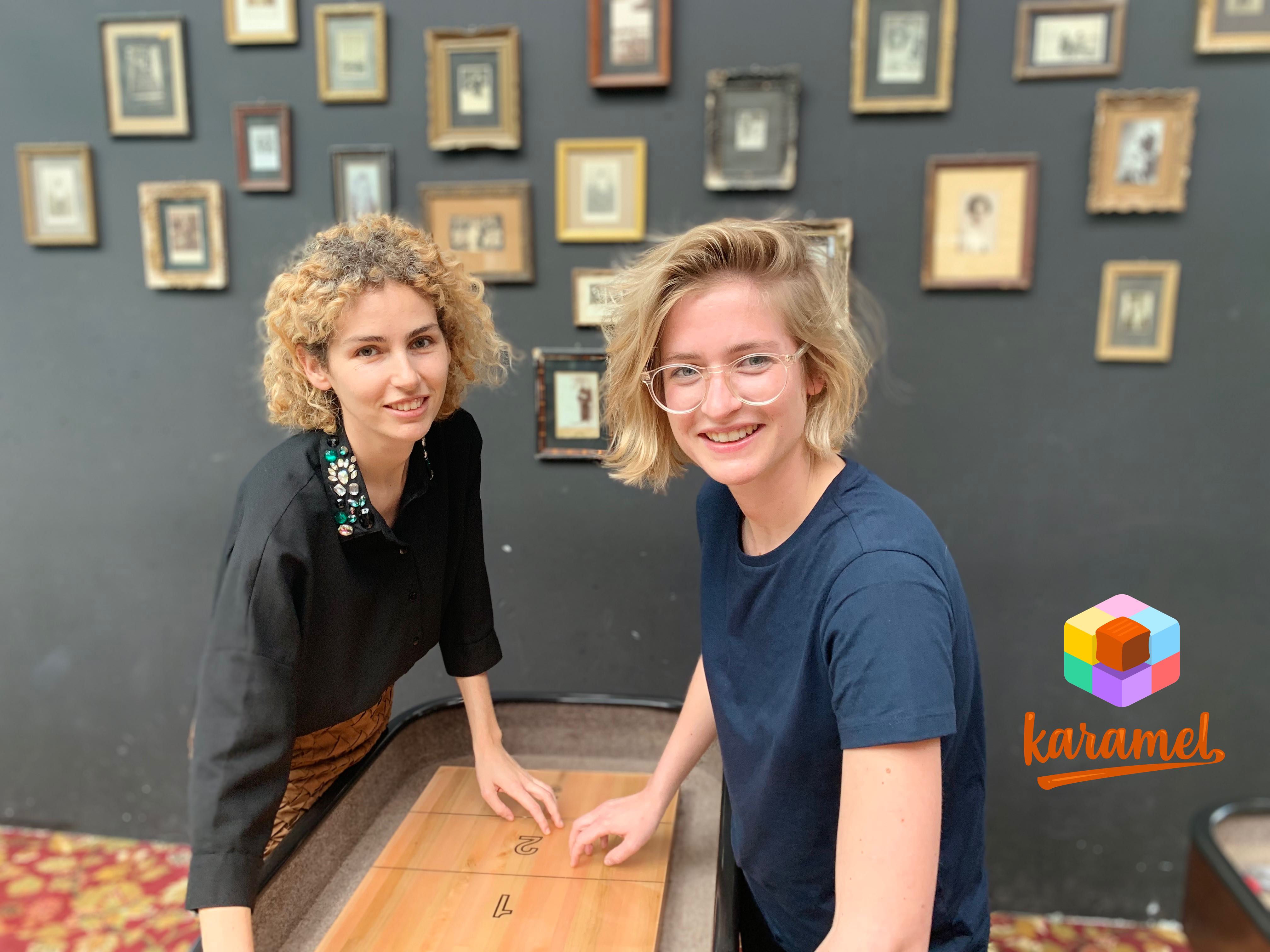
Powered by WPeMatico
Toyota testing improved solar roof for electric cars that can charge while driving
Toyota is testing a new and improved version of the solar power cells it previously launched on the Japan-exclusive Prius PHV, in a pilot along with partners Sharp and Japanese national research organization NEDO. This demo car’s prototype cells can convert solar energy at 34% and up, which is much better than the existing commercial version’s 22.5%. And, unlike its predecessor, it also can charge the car’s driving battery while the car is actually moving, recouping significant range while the vehicle is in use.
The new system will provide up to 44.5 km (27.7 miles) of additional range per day while parked and soaking up sun, and can add up to 56.3 km (35 miles) of power to both the driving system and the auxiliary power battery on board, which runs the AC, navigation and more.
Using a redesigned solar battery cell film that measures only 0.03 mm (that’s 0.001 inches), the vehicle’s engineers could put the film over a much broader surface area of the vehicle compared to the existing production version, with solar cells that wrap around covered body components, the rear door and the hood with relative ease. And as mentioned, the system can now work while the car is actually driving, thanks to changes in how generated power is fed to the system, which is a huge step up from the last generation, which could only push power to that auxiliary battery to run the radio, etc. when in motion.
This new test vehicle will hit the road in Japan in late July, and perform trials across a range of different regions to test its abilities in different weather and driving conditions. Ultimately, the goal is to use this research to facilitate the commercial deployment of more efficient solar power generation tech that can work in a number of transportation applications.
Solar-powered cars to date have been a bit of an outlier proposition: There’s Toyota’s own Prius PHV, but it’s quite limited in terms of what you gain versus a traditional plug-in electric. Lightyear One, a startup from The Netherlands, unveiled its own solar electric consumer car last month, but production on that vehicle isn’t set to start until 2021, and it’s a new entrant into the market, at that.
Powered by WPeMatico
Investing elsewhere with Revolution’s Clara Sieg
Hello and welcome back to Equity, TechCrunch’s venture capital-focused podcast, where we unpack the numbers behind the headlines.
I was in the studio alone this week with the wonderful Clara Sieg of Revolution, an early-stage venture capital fund that invests in disruptive startups from underrepresented geographies. As you might have guessed, we talked about the rising trend of investors backing companies from “second-tier” markets like Austin, Atlanta, Denver, Philadelphia, Seattle, etc.
Clara herself hails from Pittsburgh, an up and coming market for technology startups and venture capital investments. We discussed how that has influenced her career in VC and how she landed at Revolution (she’s been there for nearly a decade!) in the first place.
In this special episode, Clara also teaches me how cities become tech hubs. It’s a special kind of recipe. A city must have a great university, or a few, nearby to provide a constant flow of talent. They need some big corporations around for the same reason. They need a healthy community of angel investors ready and willing to get things going. And… well, listen to the episode to learn the rest.
Finally, I ask Clara what investment she regrets not making the most. Her answer might surprise you.
Extra Crunch subscribers can read a transcript of each week’s episode every Saturday. Read last week’s episode here and learn more about Extra Crunch here.
Equity drops every Friday at 6:00 am PT, so subscribe to us on Apple Podcasts, Overcast, Pocket Casts, Downcast and all the casts.
Powered by WPeMatico
Image recognition, mini apps, QR codes: how China uses tech to sort its waste
China’s war on garbage is as digitally savvy as the country itself. Think QR codes attached to trash bags that allow a municipal government to trace exactly where its trash comes from.
On July 1, the world’s most populated city (Shanghai) began a compulsory garbage-sorting program. Under the new regulations (in Chinese), households and companies must classify their wastes into four categories and dump them in designated places at certain times. Noncompliance can lead to fines. Companies and properties that don’t comply risk having their credit rating lowered.
The strict regime became the talk of the city’s more than 24 million residents, who criticized the program’s inflexibility and confusing waste categorization. Gratefully, China’s tech startups are here to help.
For instance, China’s biggest internet companies responded with new search features that help people identify which wastes are “wet” (compostable), “dry,, “toxic,” or “recyclable.” Not even the most environmentally conscious person can get all the answers right. Like, which bin does the newspaper you just used to pick up dog poop belong to? Simply pull up a mini app on WeChat, Baidu or Alipay and enter the keyword. The tech firms will give you the answer and why.
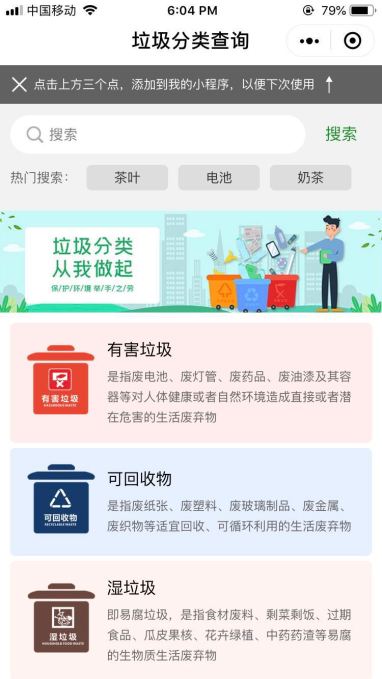
A WeChat mini program that lets users learn the category of cash
Alipay, Alibaba’s electronics payment affiliate, claims its garbage-sorting mini app added one million users in just three days. The lite app, which is available without download inside the e-wallet with one billion users, has so far indexed more than 4,000 types of rubbish. Its database is still growing, and soon it will save people from typing by using image recognition to classify trash when they snap a photo of it. Alibaba’s answer to Alexa Tmall Genie can already answer (in Chinese) the question “what kind of trash is a wet wipe?” and more.
If people are too busy or lazy to hit the collection schedule, well, startups are offering valet trash service at the doorstep. A third-party developer helped Alipay build a recycling mini app (“垃圾分类回收平台”) and is now collecting garbage from 8,000 apartment complexes across 11 cities. To date, two million people have sold recyclable material through its platform.
Ele.me, Alibaba’s food delivery arm, added trash pickup to its list of valet services its fleets offer on top of “apologize to the girlfriend” and dog walking.
Alibaba’s food delivery & local service platform https://t.co/Yh95Bt0DPG just rolled out a “throw out the trash” service for $2. The delivery guy can also “apologize to the girlfriend” on your behalf among other things #DigitalEconomyinChina $BABA pic.twitter.com/C2ey1ePDvJ
— Krystal Hu (@readkrystalhu) June 24, 2019
Besides helping households, companies are also building software to make property managers’ lives easier. Some residential complexes in Shanghai began using QR codes to trace the origin of garbage, state-owned media outlet Xinhua reported. Each household is asked to attach a unique QR code to their trash bags, which will be scanned for sources and classification when they arrive at the waste management station.
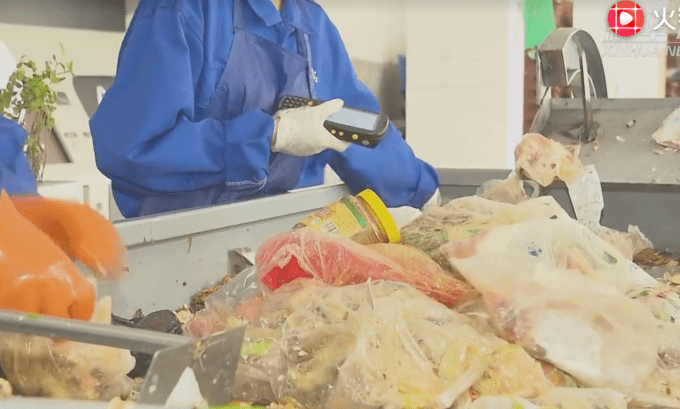
Workers at a waste management station in Shanghai scan codes on trash bags to check their source (Screenshot from Xinhua feature)
This way, regulators in the region know exactly which family has produced the trash — although the city’s current garbage regulations do not require real-name tracking — and those who correctly categorized receive a small reward of 0.1 yuan, or 1.45 cents, per day, according to another report (in Chinese) from Xinhua.
Powered by WPeMatico
Clever Cloud launches GPU-based instances
French startup Clever Cloud is a cloud-hosting company that operates a Platform-as-a-Service (or PaaS). The company just launched GPU-based instances for machine learning purposes under a new brand, Clever Grid.
Behind the scene, the company uses Nvidia GeForce GTX 1070. You get billed by the minute and the most basic instance costs €0.42 per hour, €10 per day or €300 per month. For this price, you get 6GB of RAM, an 8-core CPU, a one GPU and 250GB of storage.
Of course, you can pay more to access beefier machines. If you max out your GPU instance, you get 60GB of RAM, 32 CPU cores and 4 GPUs on the same instance. It can cost as much as €1,200.
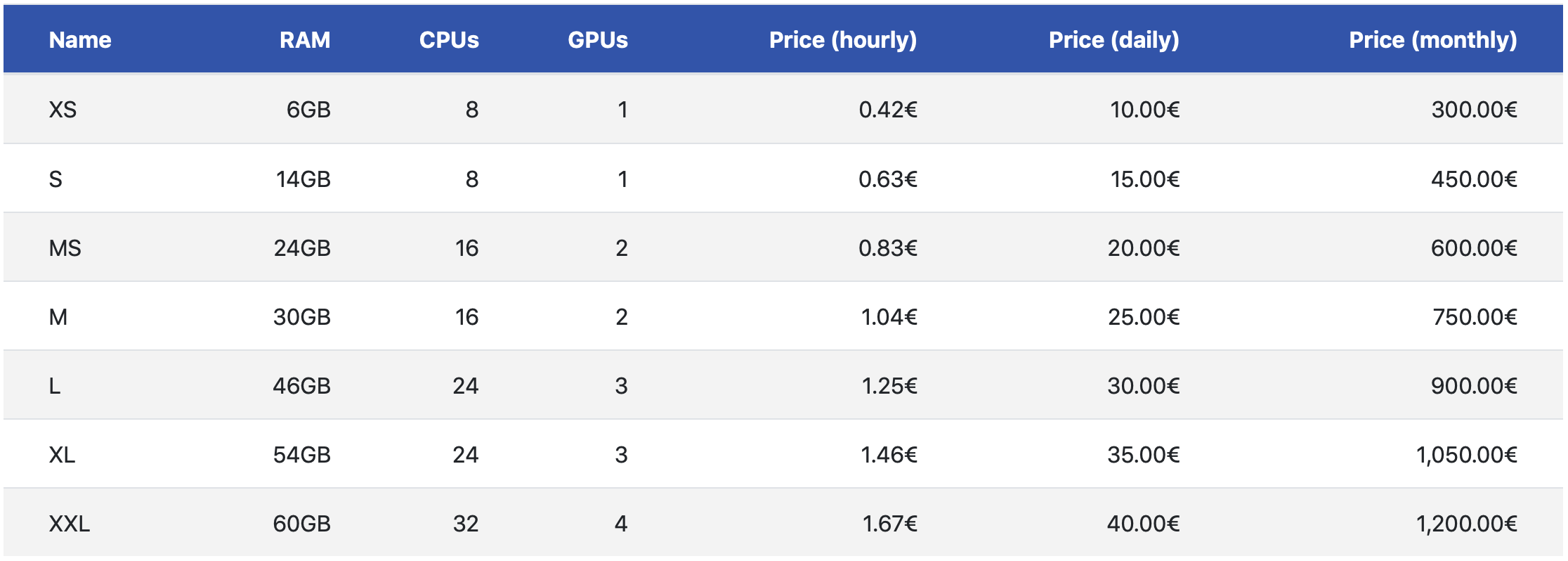
If you’re a data scientist and don’t know much about cloud infrastructure, Clever Cloud tries to abstract infrastructure management as much as possible. You can run your Python code directly on your cloud instance using a web interface.
Those instances also support TensorFlow, Scikit-learn, CUDA, Keras and PyTorch. You also can run Docker containers on those GPU instances.
One of the advantages of Clever Cloud is that it integrates directly with a GitHub repository. You can connect to your GitHub account and start a cloud instance based on a repository. The company then deploys and runs your code on a server.
In addition to seamless deployments, Clever Cloud has additional features to make sure your service runs smoothly, such as monitoring, backups and security updates.
Clever Cloud clients include Airbus, MAIF, Compte Nickel, Sogeti and the South African Ministry of Health.
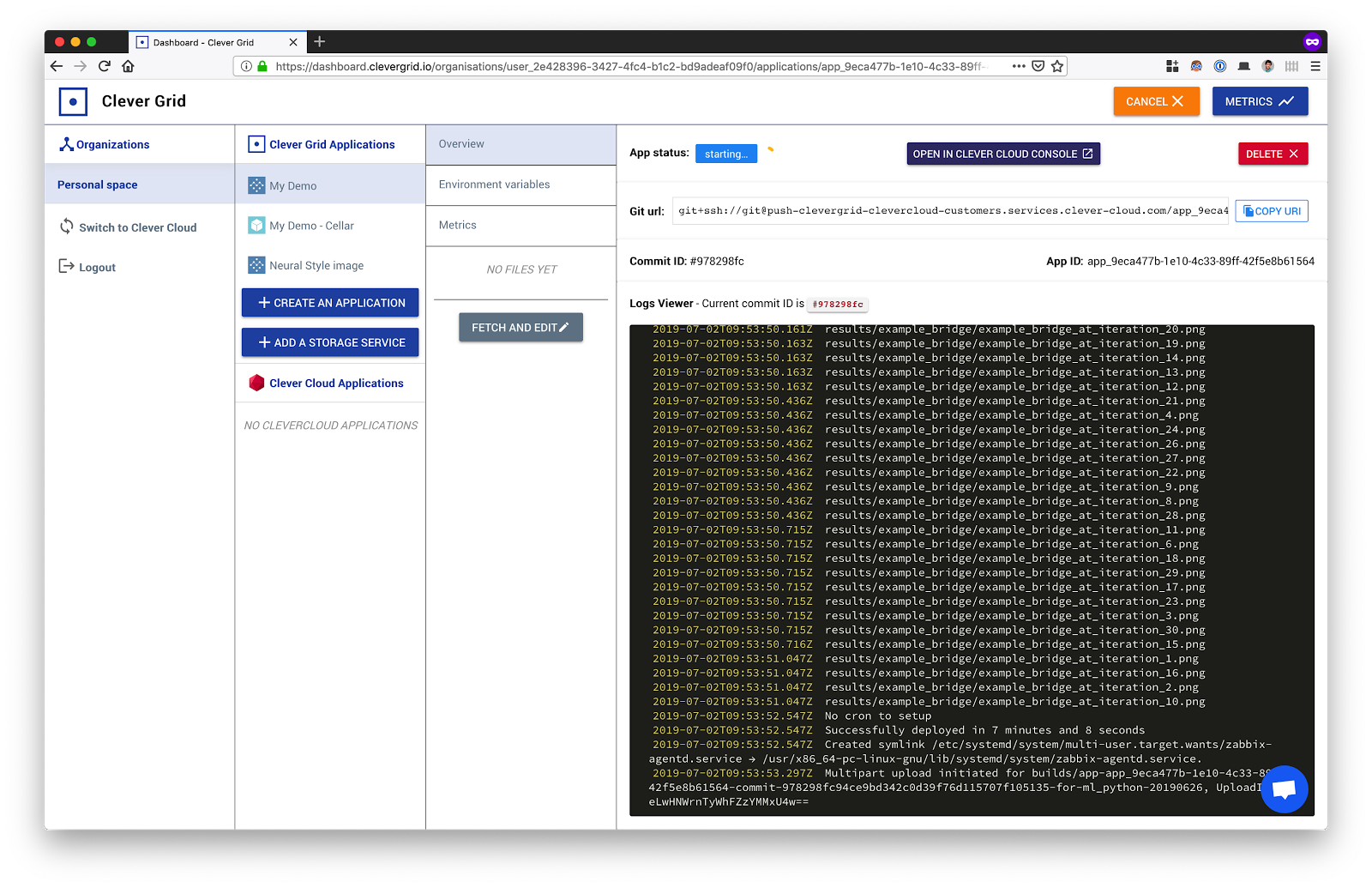
Powered by WPeMatico
Smart scooter company Gogoro launches GoShare, an end-to-end vehicle-sharing platform
Founded in 2011, Gogoro now makes the best-selling electric scooters in Taiwan, where it is headquartered. The startup has always seen itself as an end-to-end platform developer, however, and today it marked a major milestone with the announcement of a new vehicle sharing system. Called GoShare, the program will start operating with a pilot fleet of about 1,000 Gogoro smart scooters next month in Taoyuan City, Taiwan, before becoming available as a turnkey solution for partners.
Gogoro, which develops everything from their scooters and batteries to software, telematics control units and back-end servers, describes GoShare as “first fully integrated mobility sharing platform and solution.” Co-founder and CEO Horace Luke tells TechCrunch that Gogoro wants to work with partners to expand GoShare into international markets in Europe, Australia and Asia next year. He adds that building the entire platform, including its unique swappable battery system, gives Gogoro an advantage over vehicle-sharing programs from companies like Uber, Lyft, Lime, Bird and Coup because it can constantly track vehicle performance, fine-tune the system and incorporate feedback into new designs.
One of Gogoro scooters’ main advantages is their batteries, which are about the size of shoeboxes and slide in and out of scooters and charging kiosks. In Taiwan, batteries can be swapped at kiosks found at gas stations and more offbeat locations, including retail stores and cafes. GoShare scooters can use the same kiosks as privately owned Gogoro vehicles. This means that users can keep riding the same vehicle all day, swapping batteries whenever necessary (on average, Gogoro scooters can travel about 80 km on one charge). Once they are done using them, they can leave them wherever it is legal to park scooters.
“We’re a platform, we create hardware, software and server technology to serve the transportation of the future and if we can make cities cleaner and healthier, we will do it anyway possible, whether through ownership and charging batteries at home or buying scooters and swapping batteries in the system we provide or, in this case, not even buying a vehicle, but sharing it,” says Luke.
To sign up, users download an iOS or Android app and upload a photo of their driver’s license. Gogoro then uses AI-based face scanning software to check if they match the license’s photo before asking for payment information. Once enrolled, drivers can use the app to locate and reserve scooters. GoShare’s pricing has not been announced yet, but Luke says it will be competitive with public transportation. Gogoro is working with Taoyuan City’s government to offer incentives like free parking in an effort to reduce pollution and traffic.
In a press statement, Taoyuan City Mayor Wen-Tsan Cheng said, “We are confident this Gogoro partnership will continue producing remarkable reductions in air pollution caused by vehicle emissions and will accelerate the transformation of Taoyuan into a smart, livable city.”
With other vehicle-sharing systems, “it has always been the dream to have the vehicles be free-floating and autonomous in management. But they are not autonomous,” says Luke. “Most are used once or twice a day because they run out of power, or the battery is low and people are worried about them running out of energy. That is where Gogoro comes in, because we have a network that enables people to ride vehicles for as long as they want.”
There are currently about 1,200 charging kiosks in Taiwan, with about 200 in Taoyuan City, delivering power to about 200,000 scooters. Eight years after it launched, Luke says Gogoro now holds a 97% share of electric scooters sold each month in the country. When counted as part of the larger vehicle market in Taiwan, including gas vehicles, Gogoro now holds a 17% share.
Luke says the company sees Taiwan, where scooters are very popular but also a major contributor to air pollution, as Gogoro’s pilot market. It recently launched the Gogoro 3, and announced partnerships with Yamaha, Aeon and PGO to develop scooters that will run on its batteries.
The ultimate goal of Gogoro’s end-to-end system is to package it as a turnkey solution for partners around the world, says Luke. “You don’t need to shop around anymore. You can come to us with your vehicle-sharing program and say you want to turn it on.”
Powered by WPeMatico
Waresix hauls in $14.5M to advance its push to digitize logistics in Indonesia
Waresix, one of a handful of startups aiming to modernize logistics in Indonesia — the world’s fourth most populous country — has pulled in $14.5 million to grow its 18-month-old business.
This new investment, Waresix’s Series A, is led by EV Growth — the growth-stage fund co-run by East Ventures — with participation from SMDV — the investment arm of Indonesia corporation Sinar Mas — and Singapore’s Jungle Ventures . The startup previously raised $1.6 million last year from East Ventures, SMDV and Monk’s Hill Ventures. It closed a seed round in early 2018.
Waresix is aiming to digitize logistics, the business of moving goods from A to B, which it believes is worth a total of $240 billion in Indonesia.
A large part of that is down to the country’s geography. The archipelago officially has more than 17,000 islands, but there are five main ones. That necessitates a lot of challenges for logistics, which are said to account for 25-30% of GDP — a figure that is typically below 5% in Western markets — while Indonesia barely scraped the top 50 rankings in World Bank’s Logistics Performance Index.
But, as Southeast Asia’s largest economy and the key market for digital growth in the region, that makes this an attractive problem to solve… or, rather, attractive industry to modernize.
Like others in its space worldwide — which include Chinese unicorn Manbang and BlackBuck in India — Waresix is focused on optimizing logistics by making the process more transparent for clients and more efficient for haulage companies and truckers. That includes removing the chain of “middle man” brokers, who add costs and reduce transparency, and provide a one-stop solution for transportation by land or sea, as well as cold storage and general cargo handling.
As of today, Waresix claims a fleet of more than 20,000 trucks and over 200 warehouse partners across Indonesia. The company said it plans to use this new capital to expand that coverage further. In particular, that’ll include additional land transport options and additional warehouse capacity in tier-two cities and more remote areas. That’s a push that founders Andree Susanto (CEO) and Edwin Wibowo (CFO) — who met at UC Berkeley in the U.S. — believe fits with Indonesia’s own $400 billion commitment to improve national infrastructure and transport.
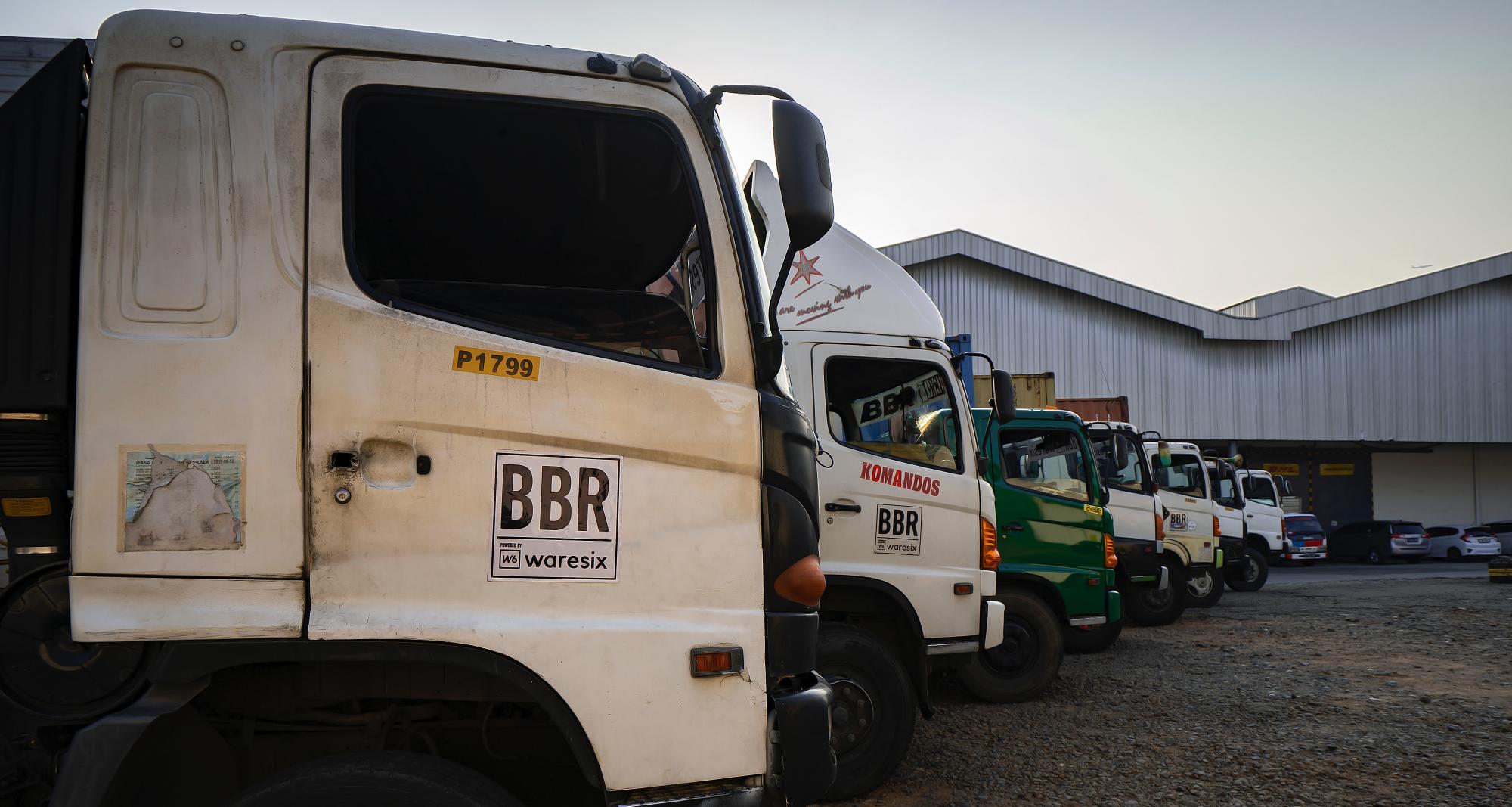
Waresix trucks
It is also consistent with East Ventures, the long-standing early-stage VC, which has backed a pack of young companies aiming to inject internet smarts into traditional industries in Indonesia. Some of that portfolio includes Warung Pintar, which develops smart street vendor kiosks, Kedai Sayur, which is digitizing street vendors, and Fore Coffee, which draws inspiration from China’s digital-first brand Luckin Coffee, which recently listed in the U.S.
Now with EV Growth, which reached a final close of $200 million thanks to LPs that include SoftBank, East Ventures has the firepower to write larger checks that go beyond seed and pre-Series A deals, as it has done with Waresix.
But the company is far from alone in going after the logistics opportunity in Indonesia. Its rivals include Kargo, which was started by a former Uber Asia exec and is backed by Uber co-founder Travis Kalanick’s 10100 fund among others, and Ritase.
Ritase, which claims to be profitable, closed an $8.5 million Series A this week. It said it has 7,500 trucks and, on the client side, some 500 SMEs and a smattering of well-known global brands. Kargo has kept its metrics quiet, but it is a later arrival on the scene. The startup only came out of stealth in March of this year when it announced a $7.6 million funding round.
Powered by WPeMatico
UnitedMasters releases iPhone app for DIY cross-service music distribution
Alphabet-backed UnitedMasters, the music label distribution startup and record label alternative that offers artists 100 percent ownership of everything they create, launched its iPhone app today.
The iPhone app works like the service they used to offer only via the web, giving artists the chance to upload their own tracks (from iCloud, Dropbox or directly from text messages), then distribute them to a full range of streaming music platforms, including Spotify, Apple Music, Tidal and more. In exchange for this distribution, as well as analytics on how your music is performing, UnitedMasters takes a 10% share on revenue generated by tracks it distributes, but artists retain full ownership of the content they create.
UnitedMasters also works with brand partners, including Bose, the NBA and AT&T, to place tracks in marketing use across the brand’s properties and distributed content. Music creators are paid out via PayPal once they connect their accounts, and they can also tie-in their social accounts for connecting their overall online presence with their music.
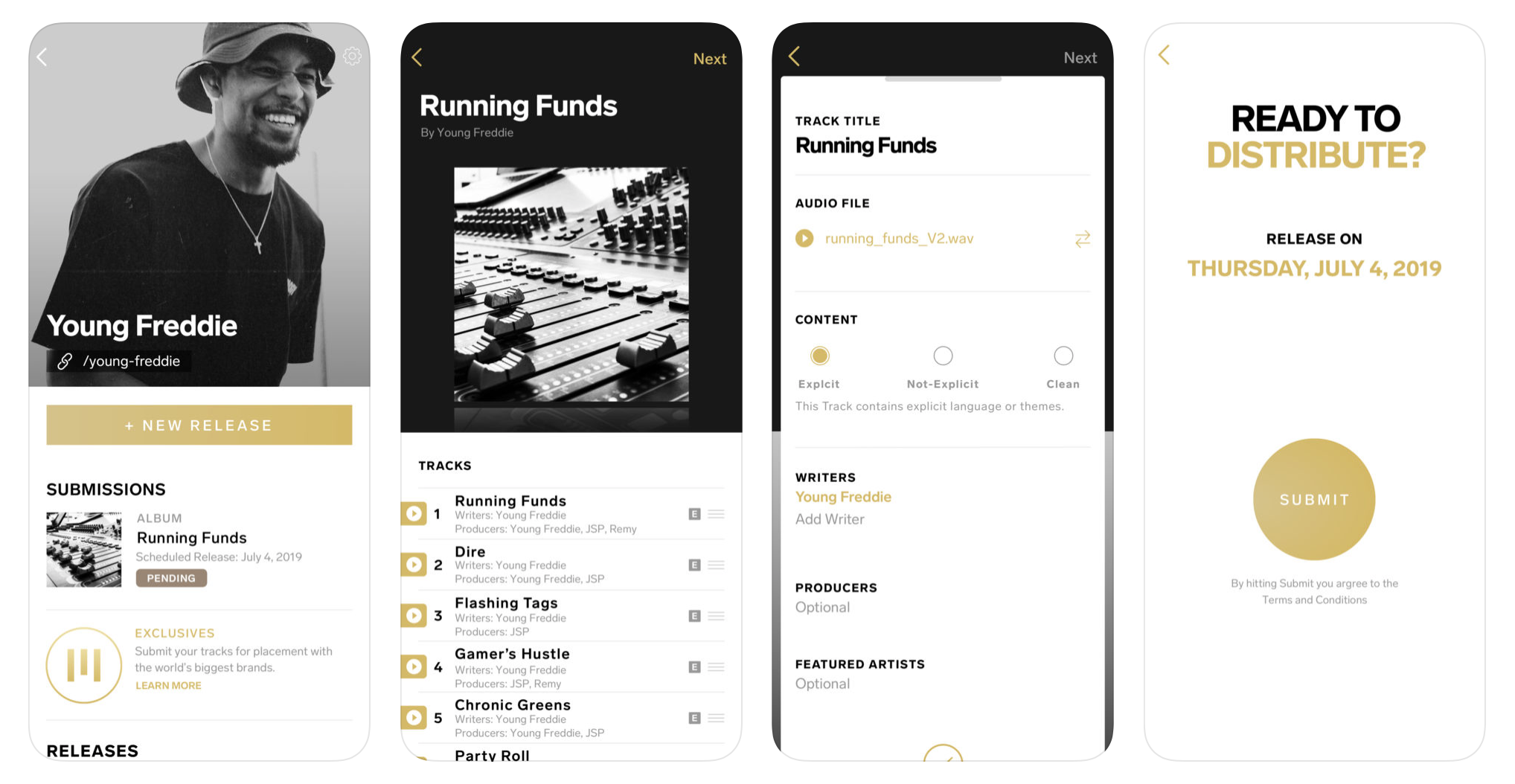
Using the app, artists can create entire releases by uploading not only music tracks but also high-quality cover art, and by entering information like whether any producers participated in the music creation, and whether the tracks contain any explicit lyrics. You can also specific an exact desired release date, and UnitedMasters will do its best to distribute across services on that day, pending content approvals.
UnitedMasters was founded by former Interscope Records president Steve Stoute, and also has funding from Andreessen Horwitz and 20th Century Fox. It’s aiming to serve a new generation of artists who are disenfranchised by the traditional label model, but seeking distribution through the services where listeners actually spend their time, and using the iPhone as manage the entire process definitely fits with serving that customer base.
Powered by WPeMatico


